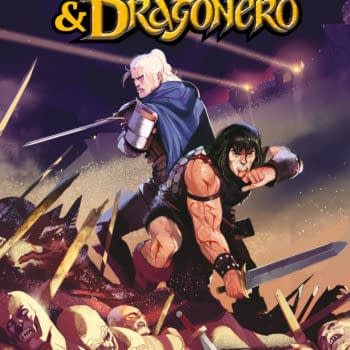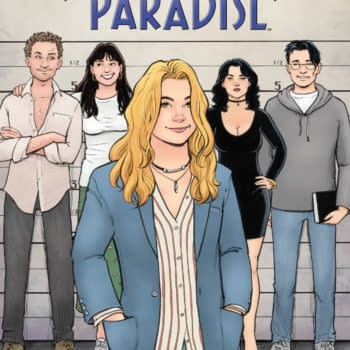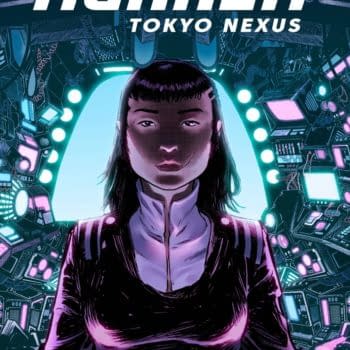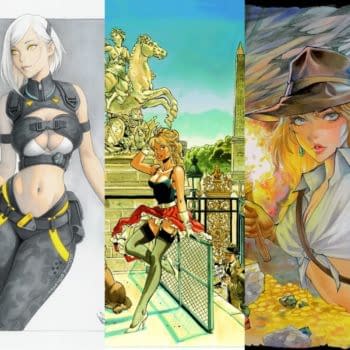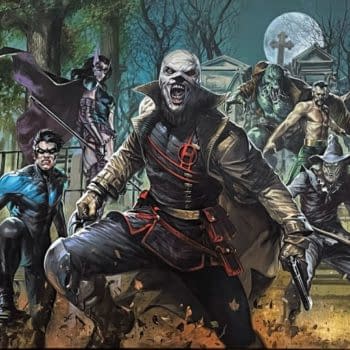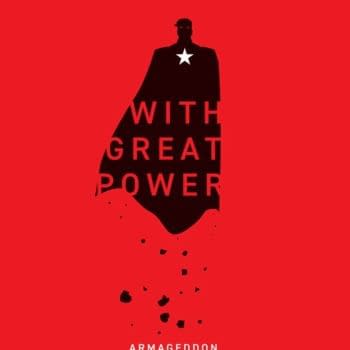Posted in: Comics | Tagged: c2e2, Comics, Culture, entertainment, panel, queer
The Evolution Of Views – The Queer Culture Panel At C2E2

You don't have to look far to find queer characters and influences in the mainstream, but this certainly wasn't always the case. Geeks OUT, a not-for-profit organization focusing on empowering queer people in the "geek" communities, explored this notion in their Queering Culture: Mainstream Influences/Niche Art panel at C2E2.
Coming from a wide variety of backgrounds and mediums, the panelists included Jennie Wood (Flutter), Kiki Jenkins (Idolon), Tony Breed (Finn and Charlie are Hitched), writer and make-up artist Aria Baci, and cartoonist Chad Sell. Moderating this panel was Geek OUT President Joey Stern.
Topics covered everything from a candid talk about how inadvertently gay Supernatural can be to stories about the repercussions of coming out to your family. Most of the content revolved around queer culture's progression into the mainstream and how it has affected both the community and pop culture. Panelists were asked which "straight" show handles queerness the best (with the clear room favorite being Orphan Black), whether the mainstream was expanding queer culture or co-opting it, and how their queer lenses affected their work.
Ultimately, two running themes struck me as the greatest take-away points from this panel. The first theme that constantly recurred was the creators' desires to be acknowledged as creators who happen to be queer, not as queer creators. While this may seem a subtle difference to many, it is difference between being defined by an aspect of your identity and having your identity merely include that aspect. It was something many of the panelists echoed in their desires for their characters and art; they want their creations to be human, to have hopes and dreams and quirks and flaws, but also be queer. It is a delicate line to walk, as many times the media simplifies these characters to "that gay character." Just as no person should be defined solely by their sexuality, these creators understand the importance of making sure their characters are equally viewed as more.
The other present theme was how these creators have evolved their own views as they explored their characters. It is something the public can tend to take for granted; when we see the finished product, we are often times left out of the creative process and evolution of the writer's thoughts as the character arcs force them to push their own comfort zones. This was perhaps none more apparent than Jennie Wood's discussions on her writing of the graphic novel Flutter. Flutter follows a girl, Lily, who is on the run from the FBI, and who just happens to have the unique ability to shapeshift. Wood discussed how growing up in a community that did not accept queerness and reinforced gender norms had forced her to naturally view the world as a boy-girl binary. Lily's journey on the run begins with her shapeshifting into a boy in order to hide. Later, as Wood began to explore the character and as her fans exposed her to gender fluidity and neutrality, she was able to explore these ideas within Lily's own experiences. I feel this is a particularly important note; we tend to see creators from marginalized identities and assume they have all the answers. Instead, each of us has acquired strengths and weaknesses in our journey and the creative process can help us see past our blind spots.
In the end, it seemed that the looming question about the mainstream's relationship with queerness was a simple answer; the children are the change we need. Those of us who are a bit older can remember a time when the media avoided queer characters, "gay" was a derogatory, and being queer inherently meant being different. Many of the questions and answers touched on how refreshing it was to see children growing up in a time that was finally accepting alternative sexualities as a normal part of life. The Legend of Korra was discussed as a great step in showing female sensuality in a way that didn't force it to the forefront. The Xena: Warrior Princess reboot was mentioned with excitement by the moderator, Stern, and serves as a great example of how a lesbian relationship was suppressed due to the time it was made, but is now being explored openly in our new, more-welcoming era. Now that children can see fair representation and view queerness as a normal part of some people's lives, we will undoubtedly see even greater representation and creativity spread into the mainstream as this generation of young consumers becomes the next line-up of creators. Bless their innocent, enlightened minds.






